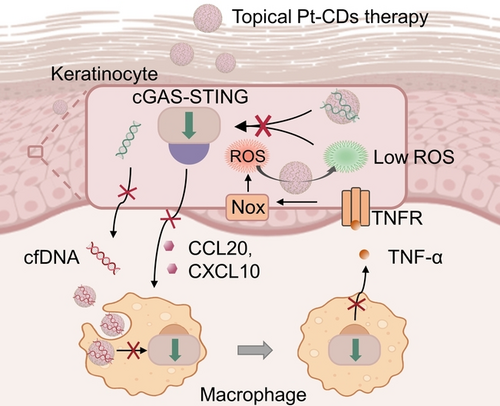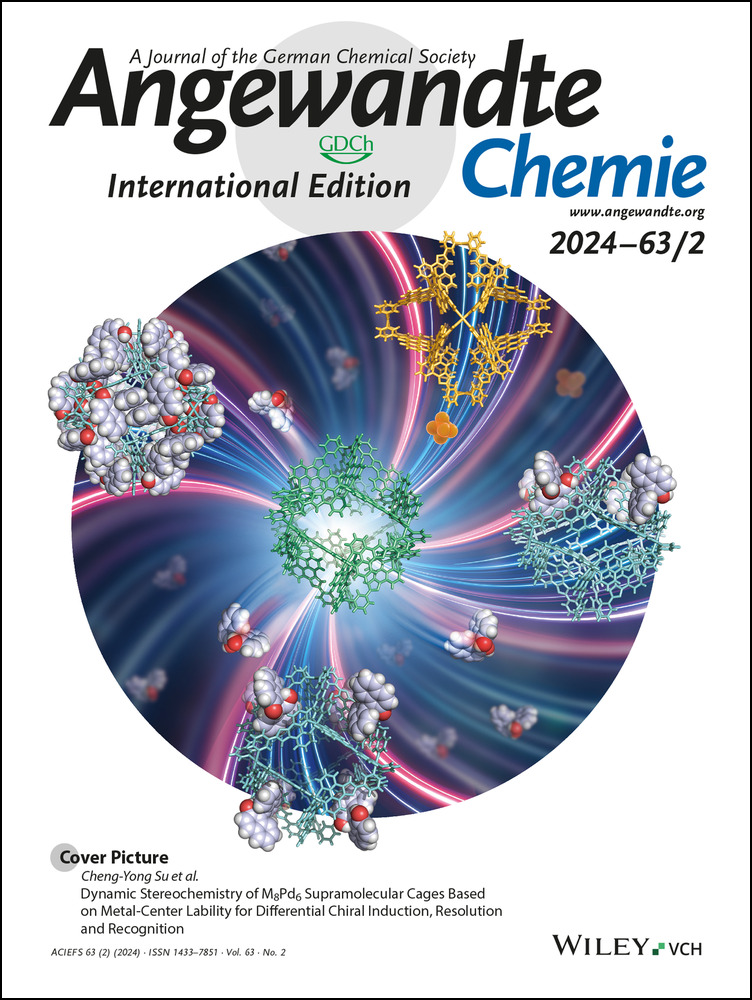A Nanoinhibitor Targeting cGAS-STING Pathway to Reverse the Homeostatic Imbalance of Inflammation in Psoriasis
Graphical Abstract
Platinum-doped positively charged carbon dots (Pt-CDs) act as nanoscavengers of cell-free DNA and reactive oxygen species, inhibiting the cGAS-STING pathway-mediated secretion of inflammatory cytokines and chemokines, which forms a positive feedback loop between macrophages and keratinocytes and amplifies the inflammatory response in psoriasis.
Abstract
Psoriasis is a chronic skin inflammation characterized by dysregulated crosstalk between immune cells and keratinocytes. Here we show that the cyclic GMP-AMP synthase (cGAS)-stimulator of interferon genes (STING) pathway is a key regulator of psoriatic inflammation in a mouse model. Platinum-doped positively charged carbon dots (Pt-CDs) were designed to inhibit the cGAS-STING pathway. By inhibiting the cGAS-STING pathway with Pt-CDs, the secretion of proinflammatory cytokines in macrophages was reduced, and the proinflammatory cytokines-induced breakdown of immunological tolerance and overexpression of chemokines in keratinocytes was restored, which reversed the homeostatic imbalance through breaking these cytokines-mediated intercellular positive feedback loop. Topical Pt-CDs treatment exhibited therapeutic effects in imiquimod-induced psoriasis mice without noticeable toxicity. The reversal of elevated expression of STING, phosphorylated STING, and downstream genes within psoriatic lesions indicates that Pt-CDs effectively inhibit the cGAS-STING pathway. This work suggests a promising strategy for psoriasis treatment by targeting the cGAS-STING pathway with Pt-CDs nanoinhibitor to restore skin homeostatic balance.
Conflict of interest
The authors declare no conflict of interest.
Open Research
Data Availability Statement
The data that support the findings of this study are available from the corresponding author upon reasonable request.





